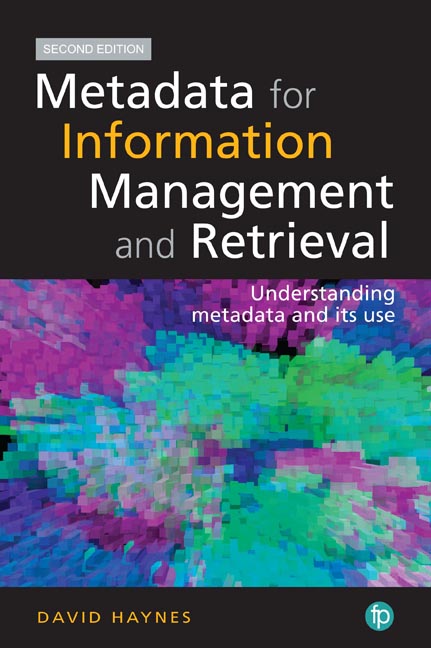PART III - MANAGING METADATA
Published online by Cambridge University Press: 08 June 2018
Summary
Part III looks at metadata as a resource to be managed, rather than as a tool for management that we saw in Part II. Chapter 11 refers back to the metadata concepts in Part I and identifies some of the issues that arise when developing and implementing metadata standards, such as quality and security. One way of addressing the quality issue is to have some control over the way in which metadata content is created. Chapter 12 considers the ways in which taxonomies and other controlled vocabularies can be used to improve metadata quality. Cataloguing rules are also important in this context as are authority files. Chapter 13 looks at very large collections of data, especially research data and official data released by public authorities. These require special consideration because of expansion of linked data and the emphasis on re-usability of public data. This raises ethical and political issues about the control and management of information as well as privacy and human rights, the topic for Chapter 14. This last chapter also peers into the future and speculates on which professional groups will be responsible for metadata management and use.
- Type
- Chapter
- Information
- Metadata for Information Management and RetrievalUnderstanding metadata and its use, pp. 161 - 162Publisher: FacetPrint publication year: 2018



